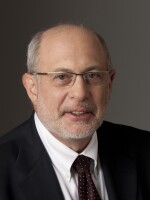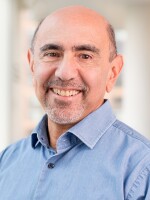MICHELE NORRIS, host:
From NPR News, this is ALL THINGS CONSIDERED. I'm Michele Norris.
ROBERT SIEGEL, host:
And I'm Robert Siegel. The Olympic torch arrived in San Francisco today for its only U.S. appearance. But the event turned into a game of cat and mouse, with police sneaking the torch past thousands of anti-China protesters who had lined the scheduled parade route earlier in the day.
(Soundbite of protesters)
SIEGEL: It was a bizarre twist: evasive action for the Olympic flame on its symbolic journey to the Beijing summer games.
NPR's Richard Gonzales has spent the day on the streets of San Francisco, talking with some of the protesters. And he joins us now with the latest.
Richard, first they cut the six-mile relay route in half, and then the torch went into hiding for about half an hour. What happened?
RICHARD GONZALES: That's correct, Robert. The first runner took the torch into a nearby warehouse at the starting point on the southern end of downtown. It disappeared for about 30 minutes, as you say, before it was apparently taken in a convoy of vans to a point about 1 mile inland, away from the original route and away from the protesters and all of the media. The latest word now is that the torch is on its way out of San Francisco. So, apparently, San Francisco police were successful in keeping the torch away from the demonstrations, and also confrontations between Tibetan exiles and their supporters, and Chinese and Chinese counterprotesters that were gathered at the foot of Market Street.
Let's hear a little bit of those confrontations.
SIEGEL: Mm-hmm.
(Soundbite of protesters chanting)
GONZALEZ: So as you can hear, it was pretty angry, very noisy and very raucous, but there were no fisticuffs, at least none in the area that we were able to monitor.
SIEGEL: But, thousands of demonstrators had lined what was supposed to have been the relay route. How did they react when the torch started bypassing them?
GONZALES: Well, there was a great deal of disappointment here, Robert. People began to drift away from this demonstration. Some people ran off to the other side of town to try to catch up with the torch and hold their protests there. But others stayed at Justin Herman Plaza at the foot of Market Street to rally in their place. We have both pro-Chinese and pro-Tibet protesters trying to occupy largely the same plaza.
SIEGEL: Now, San Francisco has a very large Chinese-American population. And in fact, it's also home to thousands of Tibetans, many of them exiles. How was that a factor in today's demonstrations?
GONZALES: Well, Chinese Americans turned out in force today. Many say that they may not support the policies of the Chinese government, but they also say that they have been offended by the protests. They feel that the protesters did not distinguish between the Chinese people and the Chinese government. And on the other hand, you have a large cadre of Tibetan exiles. And for them, this was their day to bring global attention to their cause.
I want to play for you the reaction of a young woman. Her name is Lun Tie Tong(ph). I asked her about the importance of this protest, especially to the elders in the Tibetan exile community.
Here's what she had to say.
Ms. LUN TIE TONG (Protester): People inside are saying that they'd rather die speaking out than go on their knees. And I think that all we can do is be in the streets. You know, it's not about the Olympics. It's not about athletes. It's not about torchbearers. It's about a nation that's being killed, not dying, but being killed.
GONZALES: A very emotional response. And that was a kind of thing we heard from Tibetan exiles all day long here in San Francisco.
SIEGEL: Richard, San Francisco obviously wanted to avoid a repeat of what happened in London and Paris when the torch went through those cities. Do you got the sense that in San Francisco, the city fathers, the mayor regards this as having been a success?
GONZALES: I suspect so. The people who saw the torch running through the streets of San Francisco were everyday people who were not protesters, people in downtown who were completely surprised by the torch coming through there and certainly did not expect to see it happen.
SIEGEL: Okay. That's NPR's Richard Gonzales, reporting from the Olympic torch relay route on the streets of San Francisco.
Richard, thank you.
GONZALES: Thank you, Robert. Transcript provided by NPR, Copyright NPR.







